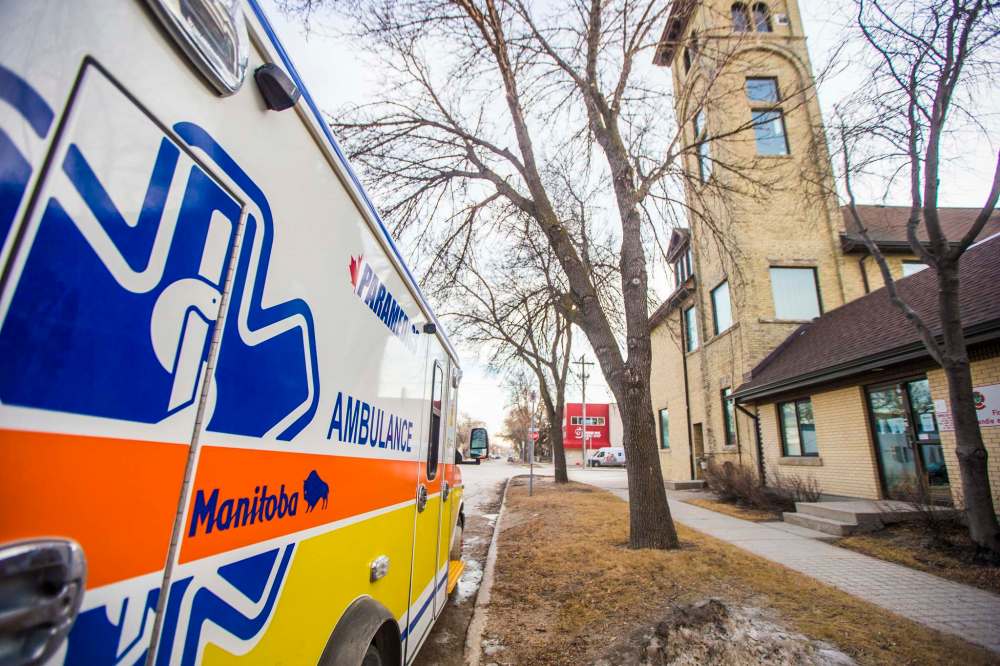Proof of immunization for front-line public workers starts Oct. 18
Advertisement
Read this article for free:
or
Already have an account? Log in here »
To continue reading, please subscribe:
Monthly Digital Subscription
$1 per week for 24 weeks*
- Enjoy unlimited reading on winnipegfreepress.com
- Read the E-Edition, our digital replica newspaper
- Access News Break, our award-winning app
- Play interactive puzzles
*Billed as $4.00 plus GST every four weeks. After 24 weeks, price increases to the regular rate of $19.00 plus GST every four weeks. Offer available to new and qualified returning subscribers only. Cancel any time.
Monthly Digital Subscription
$4.75/week*
- Enjoy unlimited reading on winnipegfreepress.com
- Read the E-Edition, our digital replica newspaper
- Access News Break, our award-winning app
- Play interactive puzzles
*Billed as $19 plus GST every four weeks. Cancel any time.
To continue reading, please subscribe:
Add Free Press access to your Brandon Sun subscription for only an additional
$1 for the first 4 weeks*
*Your next subscription payment will increase by $1.00 and you will be charged $16.99 plus GST for four weeks. After four weeks, your payment will increase to $23.99 plus GST every four weeks.
Read unlimited articles for free today:
or
Already have an account? Log in here »
Hey there, time traveller!
This article was published 24/09/2021 (1475 days ago), so information in it may no longer be current.
Nurses, teachers and other front-line employees in the public sector who cannot provide proof of full immunization before Oct. 18 will have to present a negative rapid COVID-19 test result — within 48 hours of taking it — to start their shift.
Manitoba’s top doctor has signed a new public health order that outlines which workers have direct and ongoing or prolonged contact with vulnerable populations and thus, are subject to new testing requirements.
“We’ll be using rapid antigen tests: the Abbott PanBio or BD Veritor. The people who are directed to do this testing, they will be required to have a negative test within 48 hours of their shift, so their shift work will guide the frequency of that,” said Dr. Brent Roussin, chief provincial public health officer, during a virtual briefing Friday afternoon.

The turnaround time for each test, which has a sensitivity rate of roughly 80 per cent, is approximately 15 minutes, said Roussin, who was joined by other senior public servants to field media questions.
Unvaccinated and partially vaccinated paramedics and workers in the health-care, home care, education, licensed child care, and child and family service sectors will have to take as many as three tests per week.
Public servants and employees of funded agencies who work with vulnerable populations must also abide by the new rules.
Testing policies will vary from sector to sector and depend on the nature of each workplace. In K-12 education, for instance, staff will be able to take two tests at home and one at a school site under a designated supervisor on a weekly basis.
Vikas Sethi, provincial integration lead for Shared Health, said employees across the province, however, can all expect to self-administer tests that will be provided by their employer, alongside easy-to-follow instructions.
“Direct-care workers will be required to maintain a testing log and they will be asked to produce this log by a manager, as requested, and there will be some spot checks and observed testing, as well,” said Sethi.
Per the order, employees who test positive must seek a subsequent negative PCR test to resume work. If they receive a second positive result, they must self-isolate for 10 days before they return to work, test negative again with a rapid test, and provide those results to their supervisor.
The province has suggested if and when an individual declines to provide immunization proof or get tested, the situation will be dealt with on a case-by-case basis.
Manitoba is planning for as many as 20,000 people to have to undergo frequent testing — a calculation made based on the size of the public sector and the assumption vaccine uptake among employees mirrors the rate in the general public.
Eighty per cent of residents in Manitoba who are eligible to get immunized have received two doses of vaccine to date.
The province will procure rapid tests for free indefinitely, but the central services department has indicated that may change as inventory shrinks.
A spokesperson for the local chapter of the Canadian Union of Public Employees said the association is working with individual employers to review workplace protocols and expects any staff tests and results to be kept private.
“Vaccine policies are not a replacement for personal protective equipment, proper ventilation, and thorough cleaning regimes,” David Jacks, a communications representative for CUPE Manitoba, said in a statement.
maggie.macintosh@freepress.mb.ca
Twitter: @macintoshmaggie

Maggie Macintosh
Education reporter
Maggie Macintosh reports on education for the Free Press. Originally from Hamilton, Ont., she first reported for the Free Press in 2017. Read more about Maggie.
Funding for the Free Press education reporter comes from the Government of Canada through the Local Journalism Initiative.
Every piece of reporting Maggie produces is reviewed by an editing team before it is posted online or published in print — part of the Free Press‘s tradition, since 1872, of producing reliable independent journalism. Read more about Free Press’s history and mandate, and learn how our newsroom operates.
Our newsroom depends on a growing audience of readers to power our journalism. If you are not a paid reader, please consider becoming a subscriber.
Our newsroom depends on its audience of readers to power our journalism. Thank you for your support.


